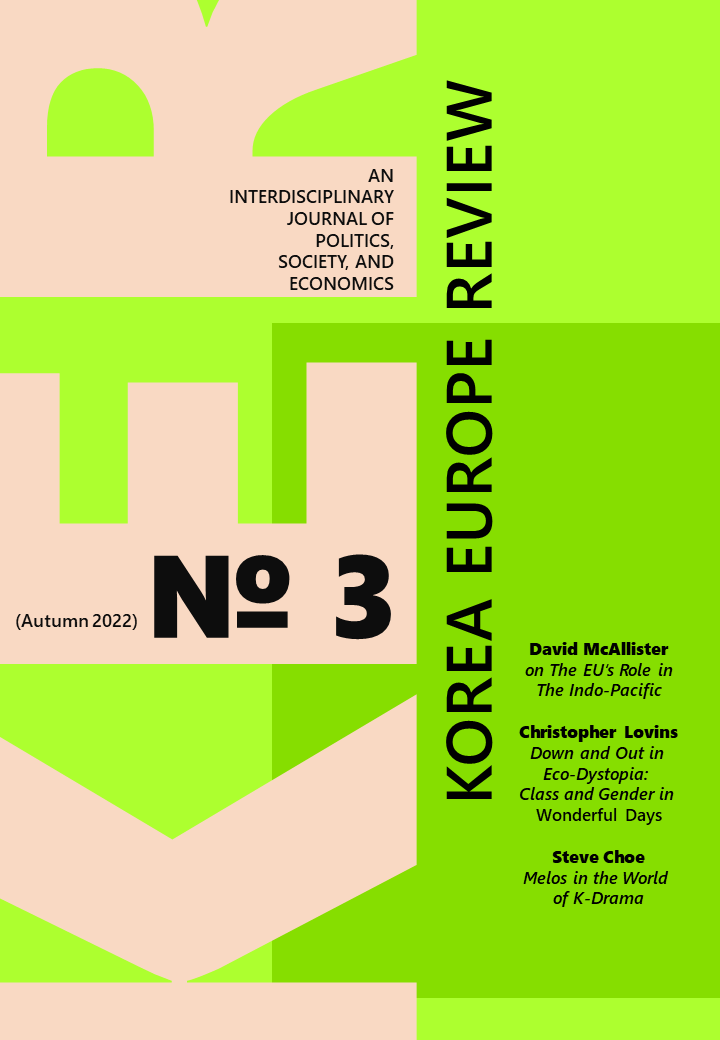Down and Out in Eco-Dystopia: Class and Gender in Wonderful Days
DOI:
https://doi.org/10.48770/ker.2022.no3.17Keywords:
Korean film, gender, class, Wonderful Days, science fictionAbstract
The film Wonderful Days plays out in a science fiction setting the history of Korea’s struggle against dictatorial rule. The plot concerns an attempt to end the exploitation of the oppressed workers. However, the symbolism is muddled and confused because of the reactionary approach to gender. The symbol of the Korean middle class and only female character is a passive observer, which elides the crucial role of the middle class in the struggle against dictatorship. By succumbing to gender roles typical of Korean romantic dramas, the film fails at effectively dramatizing Korean class conflict in its futuristic post-apocalyptic setting. This article brings history into the analysis of this film and by extension to analysis of science fiction and film overall. It offers an example of the integration of historical analysis into scholarly work on popular film.
References

Downloads
Published
Issue
Section
License
Copyright (c) 2022 Christopher Lovins

This work is licensed under a Creative Commons Attribution 4.0 International License.


